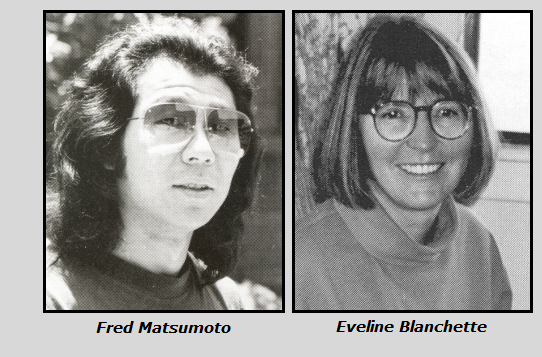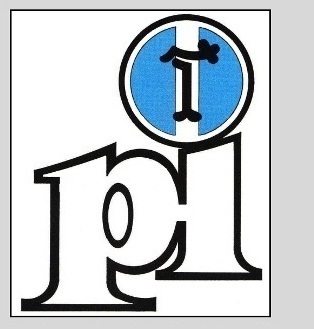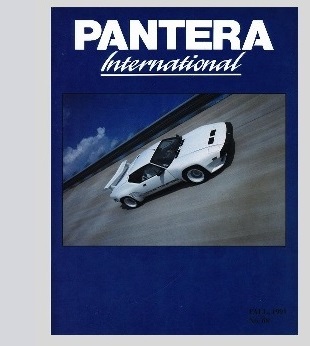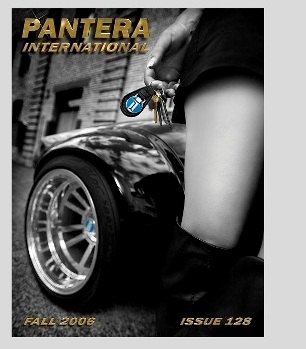| Looking Back |
|---|
Our Beginning ... 1972 – 1975The folks behind the scenes in the founding of Pantera International were Fred Matsumoto, John Chung and June Tuey; friends who were contemplating starting an advertising business called "Mind Train". John and June drove Datsun (Nissan) sports cars so Fred decided to purchase a new 1972 Pantera, chassis number 4116. Fred felt he would impress Mind Train's future client's by arriving at meetings in his sexy looking Italian sports car. Fred soon developed friendship with a trio of Pantera driving buddies including Tom DeMund, Andrew "Big Red" Dodd, and Tony Ward. Fred's Pantera was in and out of the Lincoln dealer frequently for repairs, an experience common to most 1971 and 1972 Pantera owners. The problems with the early Panteras were numerous. The number of problems overwhelmed some owners. Most of the Pantera's early problems involved the cooling system, the air conditioning system, and various electrical issues. Customer support from Lincoln/Mercury seemed indifferent, the knowledge and technical expertise available at Lincoln/Mercury dealerships varied significantly from one dealership to another. 
Fred prepared his Pantera for racing at the Bonneville Salt Flats during Speed Week in the summer of 1973. He drove his Pantera to the event, set a class record, and began driving his Pantera home. During the return trip he was involved in a collision which severely damaged his Pantera. After witnessing the problems the Lincoln/Mercury dealer was having acquiring parts to repair his Pantera Fred and his group of five friends developed the idea of rallying together Pantera owners as a club in order to share technical information and parts information via a newsletter. The group of friends organized a meeting and passed around a newsletter. This was Pantera International's "grass-roots" beginning in the summer of 1973. Our name was June's idea, we were an "international" club because it was planned to reach-out to owners in Canada as well as the USA. John assumed the role of club president, and Fred's friend Eveline Blanchette-Barkley was called in to handle our office chores (Eveline was to eventually become the editor of our quarterly newsletter). Fred preferred a behind the scene's role in the endeavor. We were up and running and membership (newsletter subscribers) grew rapidly. During the fall of 1973 Fred and John attended a meeting at "Peyton Lincoln/Mercury" in Harbor City California regarding the formation of another Pantera owners club. Fred and John provided evidence to the meeting attendees that they had already established a Pantera club. The attendees decided however that there was room for two clubs based in the US since the second club's focus would be more of a social nature, as well as event organizing, whereas our focus was to distribute information. Those in attendance argued the two clubs would complement each other rather than compete with each other. Fred, John, and the other meeting attendees decided upon Pantera Owner's Club of America (POCA) as the name for the second club because it was intended to be a national club whereas we were intended to be an international club. Our first "official" quarterly newsletter, named Pantera International News, was published in the spring of 1974; volume 1 number 1. Meanwhile "Mind Train" had evolved from its concept as an advertising business into a business supplying aftermarket parts for the Pantera. Then in late 1974 Fred's friends John Chung and June Tuey headed for Japan. Fred did not have enough time to run Pantera International alone, so operation of the club and production of the newsletter was entrusted to Eveline in early 1975 (as of volume 1 number 4). Eveline adopted the title of “coordinator”. Fred's role in Pantera International remained behind the scenes through 1991; he referred to himself as the "window monitor". 1975 – 1991
We became a California non-profit corporation on August 15, 1975. The articles of incorporation were signed by: Eveline Barkley, Fred Matsumoto and Viola Heinzelman. As per the corporate articles our mission was to promote the sport and pastime of owning and driving De Tomaso Pantera automobiles. Eveline set high standards for the newsletter. She admirably refused sexist advertising in an era when such advertising was prevalent in automotive merchandising. She also refused advertising income from any business which did not respond to and remedy a member's claim of impropriety. Eveline took the Ford Motor Company to task in August 1977 regarding the dwindling supply of Pantera parts and its connection with the Pantera's rust issue (see newsletters volume 3 number 4 through volume 4 number 3). The upshot of her meetings with Ford was a promise by Ford to re-tool the inner wheelhouse and fender panels, a promise to procure Pantera parts for Lincoln/Mercury dealerships, and a promise to investigate the rust problem. Due to the structural danger created by "where" the Pantera was rusting Eveline also communicated with the National Highway Traffic Safety Administration (NHTSA) regarding the issue of Pantera rust. This lead to another meeting with the Ford Motor Company in May 1978 (see newsletters volume 5 number 1 and volume 5 number 2) and a meeting with the NHTSA in the Summer of 1979 (see newsletter volume 6 number 1). As time progressed owners from Europe, Australia, South America and several countries outside those continents joined the club. Owners of De Tomaso automobiles other than the Pantera also found the club appealing and joined. Thus the club with a vision to assist North American Pantera owners became a club for all De Tomaso owners around the world. Our last newsletter (volume 16 number 3) was published in the spring of 1991. Dave and Linda Adler assumed control of the club in mid-1991; they adopted the titles of “Director”. 1991 – 2006
After a six month gap in publishing a new magazine format with glossy color covers was introduced as issue 68 in the Fall of 1991; thus our newsletter evolved into a magazine. Our magazine was further granted status as an official De Tomaso publication by De Tomaso Modena S.p.A. in 1995; thus we were officially granted the right to use the names De Tomaso, Pantera (and others) in our publications. The Adlers founded PI Motorsports in 1996. PI Motorsports is a retail Pantera repair and parts business. It was a completely separate business entity from Pantera International just as Mind Train (Fred Matsumoto's business) was a separate business entity from Pantera International. We are a non-profit corporation, we could not have possibly been involved in a retail business venture. However the "PI" in PI Motorpsorts was intended to give the impression it stood for Pantera International, the Adlers hoped everyone would make the assumption that the businesses were related. The truth is the letters "PI" are not initials, they are not an acronym, and they are not an abbreviation. The full name of the Adler’s business has always been simply PI Motorsports, it has never been called Pantera International Motorsports. Our foray into digital and internet media began in 1996. We established a website and advertised five domain names that first year: panterainternational.com, panteracars.com, detomasocars.com, pantera.net, and biguacars.com. Our website included a rudimentary bulletin board. Our bulletin board was replaced with commercial forum software from “Infopop” in October 2000. Our forums were the first Pantera forums on the internet. During the first few years forum activity was sparse, it was common to wait a week for a reply to a question. Meanwhile the magazine grew in size (number of pages) as the years went by. Color pages were introduced with issue 116 (Fall 2003), and the magazine went full color with issue 120 (Fall 2004). Leadership of the club was conferred to George, Debbie, Justin and Adam Pence in mid-2006. 2006 - Today
By 2006 forum activity had increased, although the forums were still only a small (but growing) portion of our business. The forums were reorganized, the number of forums was expanded, and the forum artwork was improved. The goal of those changes was to facilitate the existing users. Meanwhile magazine issue 128 (the Fall 2006 issue) was nearly six months late in being published (it was printed and mailed in early 2007). This was due to typical technical problems which arose from the transfer of our leadership and our relocation. Unforeseen at that time however, issue 128 became the last issue of our printed magazine. A worldwide financial recession in early 2007 made it infeasible to continue publishing the magazine. We know many were disappointed by the cessation of the magazine, as we were ourselves. Our options at that time were to admit defeat or to change. We refused to admit defeat; thus we slowly accepted the situation we were in and the necessity to change. Determining how to proceed required even more time. We are proud that De Tomaso owners continued to receive assistance via Pantera International in spite of our hardship; and we are proud to have survived those trying times. The financial downturn of 2007 prompted us to evaluate our activities based upon our founding mission. It also prompted us to evaluate how we accomplished our mission. The last issue of the full color (80 page) magazine cost about $10 per issue/per member to print and mail. The electronic forums cost less than $250 per month at that time. The annual cost of the forums was less than 8% of the annual cost of the magazine. Our online (internet based) collection of forums provided a far better and more efficient means for De Tomaso owners to share information than the newsletter or magazine ever did. With posts going all the way back to the year 2000, the collection of forums was a wonderful treasury of information and entertainment, organized into multiple forums to facilitate browsing a particular subject and to make information easier to find. Our forums instantaneously broadcasted information and announcements around the world; the detail of the information provided was limited only by the amount of time the author was willing to invest in preparing their post. Our forums allowed members to advertise products and cars for sale, broadcast news and advertise events. Our forums allowed members to upload pictures and/or link images in their posts. Unlike a printed document, our live forums allowed our members to interact. Forum members from around the world could provide answers to technical questions in a timely manner and our forums allowed members to respond to the author of a post with follow-up questions. Our forums were also a great place for members to meet owners and enthusiasts living in their area. Perhaps most importantly ... while our quarterly magazine provided new content only 4 times per year, our forums provided new content on a daily basis. We decided our mission would carry-on via our forums, rallying together De Tomaso owners and enthusiasts as a global community (same thing as an international club), providing a platform whereby they could continue to support each other by sharing their experiences and information. We knew there would be disappointment, resistance, and even animosity. We had no idea if our decision would succeed or fail. Activity on our forums has quadrupled since then; they have grown to become an important source of information for De Tomaso owners and enthusiasts worldwide. It was late 2009 when we decided all forum members would be considered club members as well.
|
